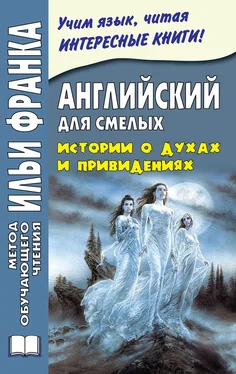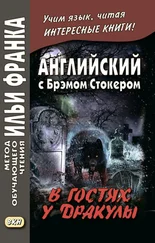
 It was solitary enough. At intervals the screech of an owl, and now and then the noise of a train, seemed to emphasize the solitude by drawing attention to it and then leaving it in possession of the night. Mr Batchel found himself wondering and conjecturing what Vicar Whitehead, who had acquired the close of land to secure quiet and privacy for a garden, would have thought of the railways to the west and north. He turned his face northwards, whence a whistle had just sounded, and saw a tree beautifully outlined against the sky. His breath caught at the sight. Not because the tree was unfamiliar. Mr Batchel knew all his trees. But what he had seen was ‘to the North, an Ilex.’
It was solitary enough. At intervals the screech of an owl, and now and then the noise of a train, seemed to emphasize the solitude by drawing attention to it and then leaving it in possession of the night. Mr Batchel found himself wondering and conjecturing what Vicar Whitehead, who had acquired the close of land to secure quiet and privacy for a garden, would have thought of the railways to the west and north. He turned his face northwards, whence a whistle had just sounded, and saw a tree beautifully outlined against the sky. His breath caught at the sight. Not because the tree was unfamiliar. Mr Batchel knew all his trees. But what he had seen was ‘to the North, an Ilex.’
Mr Batchel knew not what to make of it all. He had walked into the garden hundreds of times and as often seen the Ilex, but the words out of ‘The Compleat Gard’ner’ seemed to be pursuing him in a way that made him almost afraid. His temperament, however, as has been said already, was phlegmatic. It was commonly said, and Mr Batchel approved the verdict, whilst he condemned its inexactness, that ‘his nerves were made of fiddle-string’, so he braced himself afresh and set upon his walk round the silent garden, which he was accustomed to begin in a northerly direction, and was now too proud to change. He usually passed the Ilex at the beginning of his perambulation, and so would pass it now.
He did not pass it(он его не миновал) . A small discovery, as he reached it, annoyed and disturbed him(незначительная находка, когда он подошел к дереву, повергла его в раздражение и расстроила его планы; discovery – открытие; находка; to disturb – расстраивать, нарушать / планы /) . His gardener, as careful and punctilious as himself(его садовник, столь же аккуратный и пунктуальный, как и он сам; careful – заботливый; старательный, аккуратный ) , never failed to house all his tools at the end of a day’s work(никогда не забывал убирать все свои инструменты в конце рабочего дня: «дневной работы»; to fail – зд.: не исполнить, не сделать; to house – прятать, убирать, помещать / в какое-либо вместилище, хранилище /) . Yet there, under the Ilex, standing upright in moonlight brilliant enough to cast a shadow of it, was a spade(и все же здесь, под падубом, воткнутая в землю: «стоящая вертикально» в лунном свете достаточно ярком, чтобы отбрасывать тень, стояла лопата).
Mr Batchel’s second thought was one of relief(однако при повторном размышлении мистер Бэтчел почувствовал облегчение: «вторая мысль мистера Бэтчела была мысль облегчения») . After his extraordinary experiences in the library(после этих необычайных событий в библиотеке) (he hardly knew now whether they had been real or not(он едва ли мог сказать: «едва знал» теперь, произошли ли они на самом деле или нет; real – реально существующий, действительный ) ) something quite commonplace would act sedatively(что-нибудь вполне рутинное подействовало бы успокаивающе; commonplace – неоригинальный, ничем не примечательный ) , and he determined to carry the spade to the tool-house(и он решил /сам/ отнести лопату в сарай для инструментов; tool – / рабочий / инструмент; орудие труда ).
The soil was quite dry, and the surface even a little frozen(земля была вполне сухая, а на поверхности даже немного схваченная морозом; soil – грунт, земля, почва; to freeze – замерзать, замораживать ) , so Mr Batchel left the path, walked up to the spade(так что мистер Бэтчел сошел с тропинки, подошел к лопате; to leave – оставлять, покидать ) , and would have drawn it towards him(и потянул было ее к себе) . But it was as if he had made the attempt upon the trunk of the Ilex itself(но с тем же успехом он мог потянуть за ствол самого падуба: «но это было словно он сделал попытку на стволе самого падуба) . The spade would not be moved(лопату было не двинуть) . Then, first with one hand, and then with both, he tried to raise it(тогда, сначала одной рукой, а затем обеими, он попытался поднять ее) , and still it stood firm(но она по-прежнему не шелохнулась: «стояла твердо») . Mr Batchel, of course, attributed this to the frost, slight as it was(мистер Бэтчел, конечно, подумал, что лопата примерзла: «приписал это морозу», хотя морозец и был легким; to attribute to smth. – приписывать / чему-либо / ; относить к / чему-либо / ; slight – легкий, небольшой, незначительный ) . Wondering at the spade’s being there, and annoyed at its being frozen(удивляясь тому, что лопата находится там, и раздраженный тем, что она примерзла) , he was about to leave it and continue his walk(он собирался оставить ее /в покое/ и продолжить прогулку; to be about to do smth. – собираться сделать что-либо ) , when the remaining words of ‘The Compleat Gard’ner’ seemed rather to utter themselves, than to await his will(когда оставшиеся = завершающие слова из «Полного справочника садовода» словно сами себя произнесли, не дожидаясь его решения; will – воля; желание ) —
‘So dig, that ye may obtain(итак копайте, и вы обрящете) .’

 He did not pass it. A small discovery, as he reached it, annoyed and disturbed him. His gardener, as careful and punctilious as himself, never failed to house all his tools at the end of a day’s work. Yet there, under the Ilex, standing upright in moonlight brilliant enough to cast a shadow of it, was a spade.
He did not pass it. A small discovery, as he reached it, annoyed and disturbed him. His gardener, as careful and punctilious as himself, never failed to house all his tools at the end of a day’s work. Yet there, under the Ilex, standing upright in moonlight brilliant enough to cast a shadow of it, was a spade.
Читать дальше
Конец ознакомительного отрывка
Купить книгу


 It was solitary enough. At intervals the screech of an owl, and now and then the noise of a train, seemed to emphasize the solitude by drawing attention to it and then leaving it in possession of the night. Mr Batchel found himself wondering and conjecturing what Vicar Whitehead, who had acquired the close of land to secure quiet and privacy for a garden, would have thought of the railways to the west and north. He turned his face northwards, whence a whistle had just sounded, and saw a tree beautifully outlined against the sky. His breath caught at the sight. Not because the tree was unfamiliar. Mr Batchel knew all his trees. But what he had seen was ‘to the North, an Ilex.’
It was solitary enough. At intervals the screech of an owl, and now and then the noise of a train, seemed to emphasize the solitude by drawing attention to it and then leaving it in possession of the night. Mr Batchel found himself wondering and conjecturing what Vicar Whitehead, who had acquired the close of land to secure quiet and privacy for a garden, would have thought of the railways to the west and north. He turned his face northwards, whence a whistle had just sounded, and saw a tree beautifully outlined against the sky. His breath caught at the sight. Not because the tree was unfamiliar. Mr Batchel knew all his trees. But what he had seen was ‘to the North, an Ilex.’










